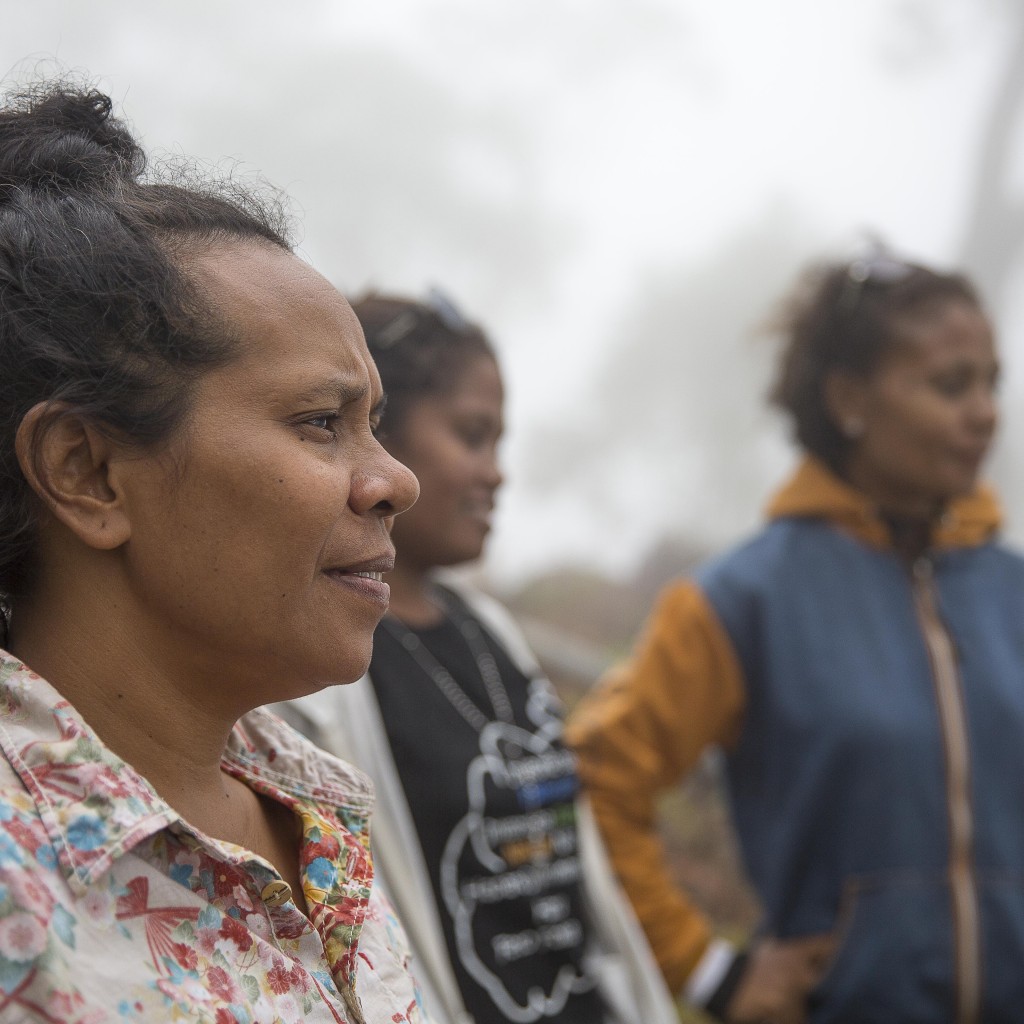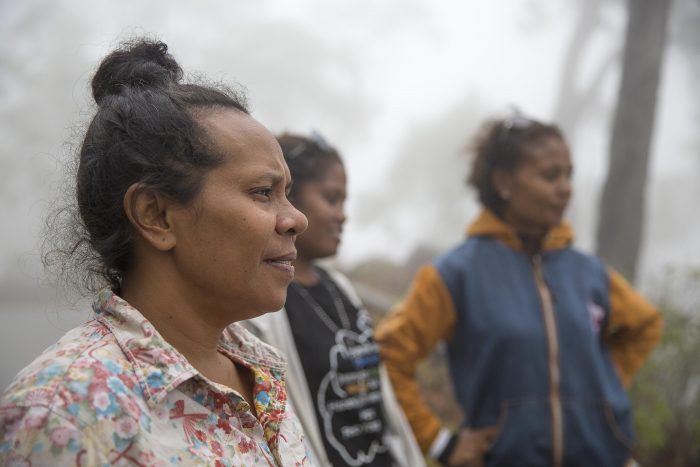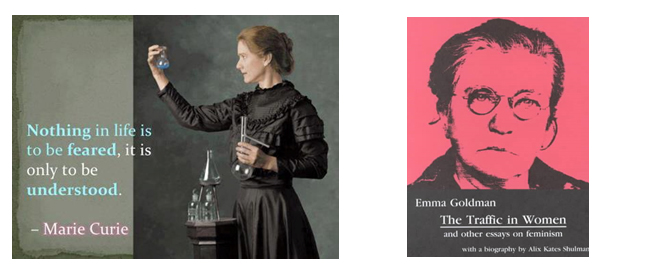
International Women’s Day 2016: A Message from Joanna Hayter, CEO
Happy International Women’s Day to you all. As I considered IWDA’s position and practice for advancing women’s rights on this important day, I found these snippets from history sobering and stimulating.

Happy International Women’s Day to you all. As I considered IWDA’s position and practice for advancing women’s rights on this important day, I found these snippets from history sobering and stimulating.
100 years ago
- Emma Goldman was arrested in New York for publicly advocating birth control.
- The last Emperor of China abdicated and the monarchy was disestablished.
- The last ship to ever carry indentured labourers to Fiji sailed.
- The British Cabinet agreed to introduce military conscription and the Home Secretary resigned in protest.
- James Joyce published ‘Portrait of an artist as a Young Man’, and Jane Austen had written ‘Pride and Prejudice’ 100 years previously.
- Australia’s Testator’s Family Maintenance and Guardianship Infants Act allowed widows automatic guardianship of their children for the first time.
- It would be another five years before Edith Cowan (featured on our $50 bank note) became the first woman in an Australian Parliament (in Western Australia’s lower house).
- Marie Curie, née Sklodowska, had won her second Nobel Prize.

50 years ago
- The Vietnam War was in its second year.
- Australia replaced British-style currency with decimal notes and coins, but a bank could refuse to issue a credit card to an unmarried woman and even if she was married, her husband was required to co-sign the application.
- The ban on employing married women in the Australian Public Service and requiring women to resign when they married was lifted.
- ‘Aboriginal natives’ were still not counted when determining ‘the numbers of the people of the Commonwealth, or of a State or other part of the Commonwealth’ (this discriminatory provision was removed a year later, in 1967, in the highest every YES vote in a referendum in Australia’s history).
- Frank Sinatra and “The Sound of Music” were the big award winners at the 1966 Grammy and Academy Awards but the times were achanging, with The Beatles, Bob Dylan and The Doors launching iconic albums and the Supremes and Dionne Warwick charting.
- Star Trek and Batman appeared on our TV screens and thanks to second-wave feminism, there were someimprovements to women’s representation on the page, such as Marvel Girl’s transformation into Phoenix (from the weakest to the strongest member of the X-Men!).
- Betty Friedan’s ‘The Feminine Mystique’ was a bestseller and identified the “problem that has no name” – which feminists later labelled “sexism.”
- Rachel Carson’s 1962 book Silent Spring had drawn huge attention to the dangers of pesticides and helped inspire the environmental movement.

In the last year
- Sweden announces that a feminist perspective will be applied to all aspects of Sweden’s foreign policy. The goal is not only to come to terms with structures that are unjust to women, but also to promote peace, stability and sustainable economic development.
- A global climate change pact is agreed at the COP 21 summit, committing all countries to reduce carbon emissions for the first time.
- The 17 Sustainable Development Goals are launched and recognise the importance of gender equality and women’s empowerment to achieving sustainable development, including in a standalone goal on gender equality and women’s empowerment (Goal 5) and gender related targets across other goals including those related to health, agriculture, education, climate change and economic inequality.
- The African Girls’ Summit on Ending Child Marriage is held in Zambia with leaders reaching agreement for on an action plan to end child marriage by 2030.
- ‘Les Femmes d’Alger’ by Pablo Picasso sells for US$3 million setting a new world record for a painting. This would cover IWDA operations at our current level for 24 years.
- Tropical Cyclone Winston devastates Fiji. The women’s movement mobilises women-focused responses to address the gaps in psycho-social support and sexual and reproductive health services.
- The Association for Women’s Rights in Development (AWID) postpones the global conference in Brazil due to the uncertainty around Zika virus and its impact on women and their children.
- Australia’s third ‘Minister for Women’ is appointed. Since 1976 there have been 17 parliamentarians in this role, although 14 of the 17 were Ministers assisting the Prime Minister.

In the last week
At the Australian Governance Summit, Australian of the Year, David Morrison, challenges participants to address equality and diversity in the board room and through company strategy. IWDA’s CEO further challenges company directors not to instrumentalise or commodify women now that business has recognised women are good for economic growth and productivity. I urge caution about assuming economic growth is good for women if other parts of women’s lives, including the unpaid work that is vital to social and economic prosperity but remains uncounted in GDP, are not also renegotiated or redistributed.
March 8th every year is the day we honour the courage and determination of our elders and ancestors who challenged systems and structures so bravely and began to erode the underpinnings of oppression. We must continue the movement they started.
IWDA proudly stands as part of this continuing movement for change, empowering women to lead through partnerships across Asia and the Pacific and through research and advocacy alliances.
As I reflect on history for this year’s International Women’s Day, I feel optimism about the centrality that gender equality now has in Australian institutions and policy; optimism that the taboo on discussing violence against women is fading; optimism that the aid program requires accountability to show advancement for women and girls. These possibilities present us with pathways to push ahead and create real change for women and girls. Sadly I only have to check my news feed, catch a train home at night or travel to a rural town anywhere in the world to know that respect and freedom for women and girls remains elusive. The movement for equality must keep marching. Please join us in writing the future.
I hope your International Women’s Day is inspiring and motivating. May your year ahead see change and advancement of the rights women demand and the equality the world cannot survive without.
Here are some ideas for how you can support women’s rights around the world:
- Donate to IWDA’s International Women’s Day Appeal to invest in women’s leadership programs
- Speak out against injustice and violence against women everywhere, wherever and whenever you witness it.
- Find out about the Global Goals for Sustainable Development and what these mean for women and girls in Australia and all over the world.
- Think about ways your community or organisation can contribute to reaching the targets linked to Gender Equality in the Global Goals, and share this information with government for our national reporting.
- Encourage your friends and family to join our mailing list
- Hold a community learning event on women’s rights or gender equality and ask IWDA for resources to share
- Organise a discussion at your school, community or workplace about practical and feasible action you could take to change an aspect of inequality that would improve outcomes for women and girls.
- Find a sports fundraising event near you through our Everyday Hero page to raise awareness about women’s rights and funds for IWDA’s work.
- Set up mentoring and women’s leadership programs at your workplace
- Petition for 50/50 quotas on committees, event line-ups or interview or election list at your workplace or local government
- Suggest to anyone who says women and girls are already equal that they look at the United Nations Statistics Office report The World’s Women 2015: Trends and Statistics. Any chapter they choose will show that things are changing but too slowly.

